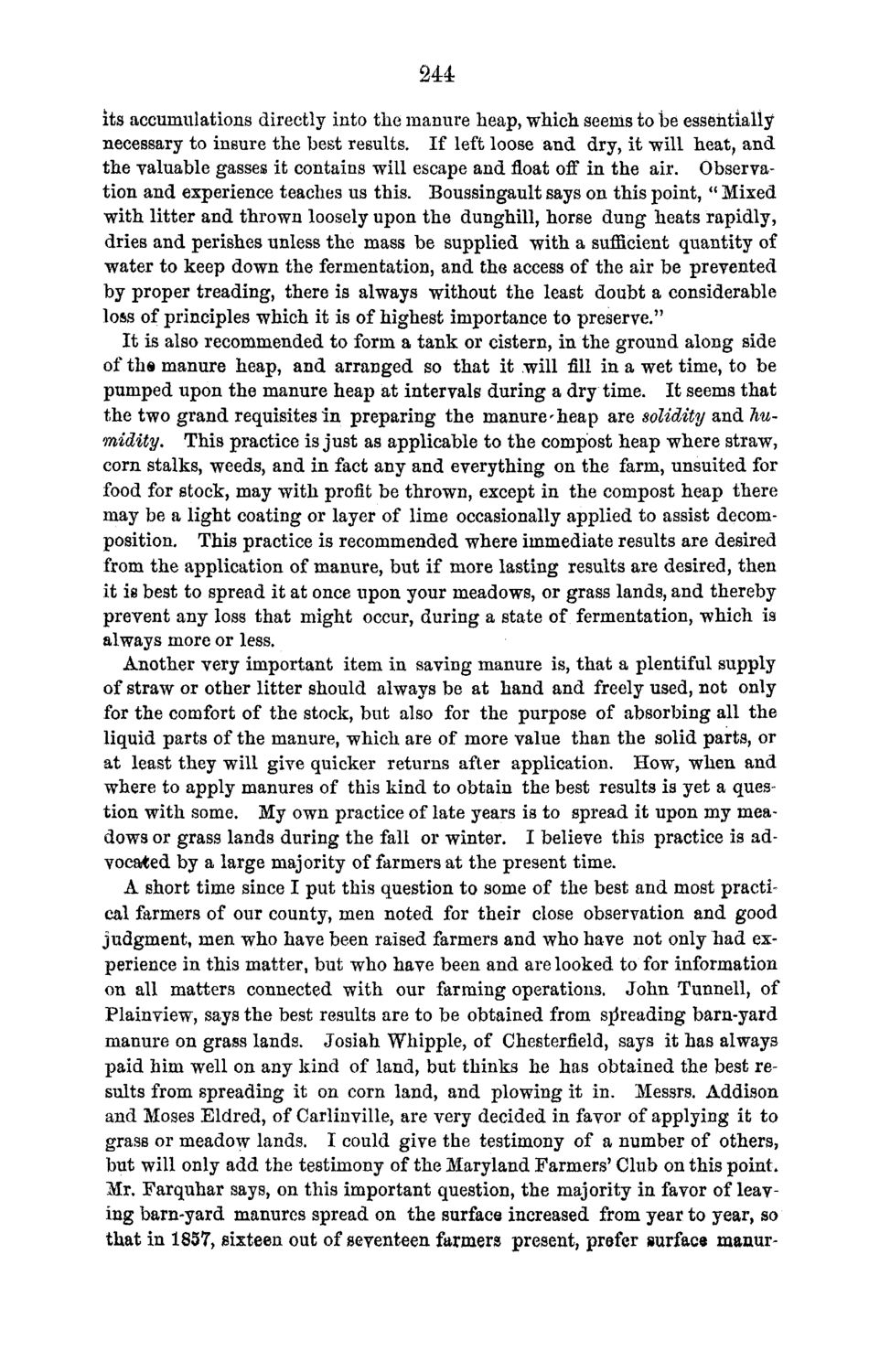| |
| |
Caption: Board of Trustees Minutes - 1870
This is a reduced-resolution page image for fast online browsing.

EXTRACTED TEXT FROM PAGE:
244 its accumulations directly into the manure heap, which seenis to be essentially necessary to insure the best results. If left loose and dry, it will heat, and the valuable gasses it contains will escape and float off in the air. Observation and experience teaches us this. Boussingault says on this point, " Mixed with litter and thrown loosely upon the dunghill, horse dung heats rapidly, dries and perishes unless the mass be supplied with a sufficient quantity of water to keep down the fermentation, and the access of the air be prevented by proper treading, there is always without the least doubt a considerable loss of principles which it is of highest importance to preserve." It is also recommended to form a tank or cistern, in the ground along side of the manure heap, and arranged so that it will fill in a wet time, to be pumped upon the manure heap at intervals during a dry time. It seems that the two grand requisites in preparing the manure'heap are solidity and humidity. This practice is just as applicable to the compost heap where straw, corn stalks, weeds, and in fact any and everything on the farm, unsuited for food for stock, may with profit be thrown, except in the compost heap there may be a light coating or layer of lime occasionally applied to assist decomposition. This practice is recommended where immediate results are desired from the application of manure, but if more lasting results are desired, then it is best to spread it at once upon your meadows, or grass lands, and thereby prevent any loss that might occur, during a state of fermentation, which is always more or less. Another very important item in saving manure is, that a plentiful supply of straw or other litter should always be at hand and freely used, not only for the comfort of the stock, but also for the purpose of absorbing all the liquid parts of the manure, which are of more value than the solid parts, or at least they will give quicker returns after application. How, when and where to apply manures of this kind to obtain the best results is yet a question with some. My own practice of late years is to spread it upon my meadows or grass lands during the fall or winter. I believe this practice is advocated by a large majority of farmers at the present time. A short time since I put this question to some of the best and most practical farmers of our county, men noted for their close observation and good judgment, men who have been raised farmers and who have not only had experience in this matter, but who have been and are looked to for information on all matters connected with our farming operations. John Tunnell, of Plainview, says the best results are to be obtained from spreading barn-yard manure on grass lands. Josiah Whipple, of Chesterfield, says it has always paid him well on any kind of land, but thinks he has obtained the best results from spreading it on corn land, and plowing it in. Messrs. Addison and Moses Eldred, of Carlinville, are very decided in favor of applying it to grass or meadow lands. I could give the testimony of a number of others, but will only add the testimony of the Maryland Farmers7 Club on this point. Mr. Farquhar says, on this important question, the majority in favor of leaving barn-yard manures spread on the surface increased from year to year, so that in 1857, sixteen out of seventeen farmers present, prefer surface manur-
| |